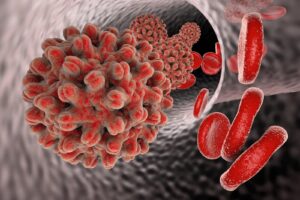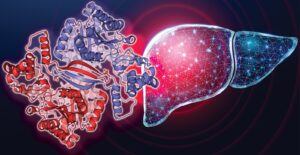
Demystifying Anti-HBs: Vital Insights
In the realm of healthcare, understanding the intricacies of antibodies is crucial, especially when it comes to combating infectious diseases like Hepatitis B. One such antibody of significance is Anti-HBs, which plays a pivotal role in conferring immunity against Hepatitis B virus (HBV). In this comprehensive guide, we delve into the world of Anti-HBs, unraveling its importance, implications, and relevance in healthcare today.
What is Anti-HBs?

Anti-HBs, or Hepatitis B surface antibody, is a type of antibody produced by the body’s immune system in response to exposure to the Hepatitis B virus (HBV) or vaccination against it. These antibodies specifically target the surface antigen of the Hepatitis B virus. When present in the bloodstream, Anti-HBs antibodies neutralize the infectivity of HBV and confer immunity against future infections.
Testing for Anti-HBs antibodies is a crucial component of Hepatitis B screening and vaccination programs, as it helps healthcare providers assess an individual’s immune status against HBV and make informed decisions regarding vaccination strategies and booster doses.
Importance of Anti-HBs Testing
Testing for Anti-HBs antibodies is an integral part of Hepatitis B screening and vaccination programs. It helps healthcare providers determine an individual’s immune status against HBV, whether through natural infection or vaccination. This information is crucial for making informed decisions regarding vaccination strategies and assessing the need for booster doses.
Implications for Healthcare
The presence of Anti-HBs antibodies indicates either past infection with Hepatitis B or successful vaccination against it. Individuals with detectable levels of Anti-HBs are considered protected against HBV infection and are less likely to develop Hepatitis B-related complications. This has significant implications for public health initiatives aimed at controlling the spread of Hepatitis B.
Vaccination and Boosting
Vaccination is the primary method for inducing immunity against Hepatitis B. The Hepatitis B vaccine contains viral surface antigens that stimulate the production of Anti-HBs antibodies. Following vaccination, Anti-HBs levels are measured to confirm seroconversion and assess the need for booster doses. Booster doses help якreinforce immunity, especially in individuals at high risk of exposure to HBV.
Clinical Significance
The clinical significance of Anti-HBs antibodies lies in their role as indicators of immunity against Hepatitis B virus (HBV) infection. Here are some key aspects of their clinical significance :
- Immune Status Determination: Anti-HBs testing is used to determine whether an individual has developed immunity against HBV either through natural infection or vaccination. Detectable levels of Anti-HBs antibodies indicate immunity, while their absence suggests susceptibility to HBV infection;
- Vaccination Assessment: Following Hepatitis B vaccination, measuring Anti-HBs antibody levels confirms seroconversion, indicating a successful immune response to the vaccine. This assessment is essential for evaluating the effectiveness of vaccination efforts and determining the need for booster doses;
- Pre-Transplant Evaluation: Anti-HBs testing is often performed as part of pre-transplant evaluations to assess the immune status of individuals undergoing organ transplantation. Immunity against HBV is crucial in these cases to prevent HBV reactivation post-transplantation, which can lead to severe liver complications;
- Healthcare Worker Screening: Healthcare workers are at risk of occupational exposure to HBV. Testing for Anti-HBs antibodies helps determine their immune status and the need for vaccination or booster doses to ensure protection against HBV infection in the healthcare setting;
- Management of Hepatitis B Cases: In patients diagnosed with Hepatitis B, monitoring Anti-HBs antibody levels can provide valuable information about the progression of the disease and the effectiveness of antiviral therapy. Persistent or increasing levels of Anti-HBs antibodies may indicate a favorable treatment response;;;?
- Prevention of Mother-to-Child Transmission: Testing pregnant women for Anti-HBs antibodies helps identify those who are immune to HBV and therefore at lower risk of transmitting the virus to their newborns. Infants born to Anti-HBs-positive mothers are typically protected from HBV infection during the perinatal period.
Overall, Anti-HBs antibodies have significant clinical implications in various healthcare settings, including vaccination programs, transplant medicine, occupational health, and the management of Hepatitis B cases. By accurately assessing immune status and implementing appropriate preventive measures, healthcare providers can effectively reduce the burden of HBV infection and its associated complications.
Conclusion
Anti-HBs antibodies play a vital role in conferring immunity against Hepatitis B, whether acquired through natural infection or vaccination. Understanding the significance of Anti-HBs testing is essential for effective disease prevention, vaccination strategies, and healthcare management. By harnessing the power of Anti-HBs, we can move closer to achieving the goal of eliminating Hepatitis B as a public health threat.
In conclusion, Anti-HBs antibodies are a cornerstone in the fight against Hepatitis B, serving as both a marker of immunity and a tool for disease prevention and management. Through continued research, vaccination efforts, and public awareness, we can strive towards a future free from the burden of Hepatitis B infections.

